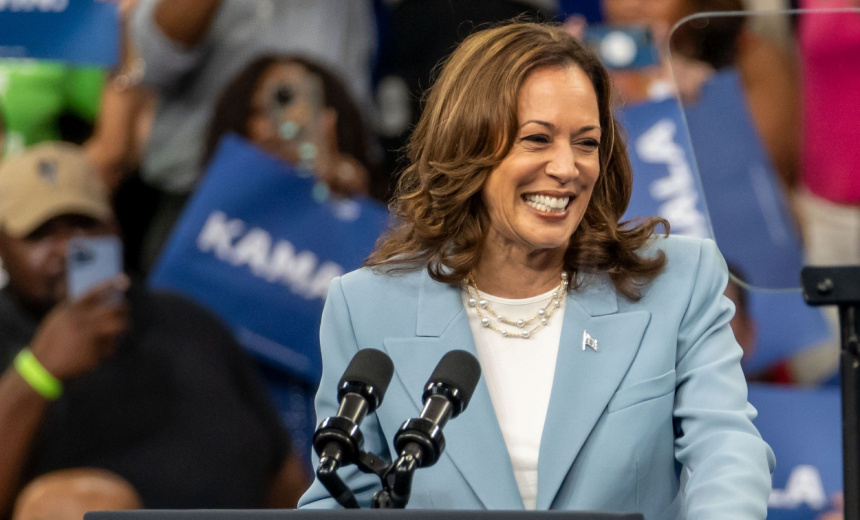Cyberwarfare / Nation-State Attacks
,
Fraud Management & Cybercrime
Microsoft Says Russia-Linked Cyber Actors Are Supporting Trump by Attacking Harris

Microsoft security researchers observed Russian cyber actors targeting Vice President Kamala Harris’ 2024 presidential campaign with a slew of fake videos and misinformation that gain millions of impressions online.
See Also: OnDemand | 2024 Phishing Insights: What 11.9 Million User Behaviors Reveal About Your Risk
Microsoft’s Threat Analysis Center on Tuesday published a report detailing the Kremlin’s interference efforts in U.S. elections. The report says a Russian troll farm tracked as Storm-1516 began disseminating false videos after Harris entered the presidential race on the Democratic ticket, including one that showed her supporters attacking an individual attending a rally for former President Donald Trump, the Republican candidate for president.
Other Russian groups likely aligned with the Kremlin have shifted their focus to the Harris campaign in recent months, according to Microsoft, with the goal of “exploiting any perceived vulnerabilities” for the vice president and her running mate, Gov. Tim Walz, D-Minn. Microsoft President Brad Smith warned lawmakers that Russian cyber proxies could attempt to disrupt U.S. election websites on Election Day, as they were seen doing during the 2022 midterm elections.
“The election is here, and our adversaries have wasted no time in attempting to interfere,” Smith testified Wednesday before the Senate Select Committee on Intelligence. Smith said that Microsoft has found Russian operations “are inclined to denigrate Vice President Harris’ campaign, indicating a preference for a Trump victory.”
Microsoft previously warned that hackers associated with Iran’s Revolutionary Guard were ramping up their operations in the lead-up to the November vote, targeting campaigns with phishing attacks (see: Iran Amplifies US Election Influence Campaign).
Russian cyber actors have shared false videos in September purporting to show Harris involved in a hit-and-run incident, according to Smith, who said the original video received more than 2 million views in the week following its release. The Microsoft chief said Russian cyber groups are posing as local activists while shifting their focus to the Harris-Walz campaign, “employing dozens of people” and being led by sanctioned cybercriminals.
Smith urged Congress to enact a new federal “deepfake fraud statute” that would provide a legal framework “to prosecute AI-generated fraud and scams as they proliferate in speed and complexity.” He also called on lawmakers to require AI system providers to use advanced provenance tools to label synthetic content and pass the bipartisan Deceptive AI Act, which would prohibit the use of AI to generate false and deceptive content depicting federal candidates in political advertisements aimed at influencing federal elections.
“Legislation is needed to ensure that bad actors cannot exploit ambiguities in current law to create and distribute deceptive content,” Smith said.
California Gov. Gavin Newsom on Tuesday signed three election-related AI bills. One of them requires “large online platforms” such as Facebook and X, formerly Twitter, to restrict the spread of election-related deceptive deepfakes. Another defines a period during which platforms must limit election-related deepfakes as 120 days before the election and 60 days afterward, while a third requires electoral campaigns and political action groups to label advertisements made or altered using AI (see: California Enacts Laws to Combat Election, Media Deepfakes).
